Elephants are one of the most majestic animals on earth. They are known for their intelligence, their long trunks, and their large ears. Elephants have been a part of human history for thousands of years, and they have played an important role in many cultures around the world.
The First Elephant in England

The first elephant to arrive in England was brought over by Henry III in the thirteenth century. It was a gift from the King of France, and it was kept in the Tower of London. This elephant was an object of fascination and wonder, and it was paraded through the streets of London for all to see.
The Elephant as a Symbol of Power
In many cultures, the elephant has been a symbol of power and strength. In ancient India, for example, elephants were used as war animals, and they were also used in religious ceremonies. The elephant was also a symbol of royalty, and kings would ride on elephants as a sign of their power and authority.
Elephants in Literature

Elephants have been featured in many works of literature over the years. In Rudyard Kipling's "The Jungle Book," for example, the character of Hathi is an elephant who is revered by all the animals in the jungle. In Ernest Hemingway's "The Short Happy Life of Francis Macomber," an elephant hunt is a central part of the story.
Elephants in Pop Culture

Elephants have also been a part of pop culture for many years. In Disney's "Dumbo," for example, the title character is a young elephant who can fly with the help of his large ears. In Pink Floyd's "Animals" album, the song "Pigs on the Wing" features a line about "elephants dancing in the room."
Threats to Elephant Populations

Unfortunately, elephants are facing many threats in the wild today. One of the biggest threats is habitat loss, as human populations continue to encroach on elephant habitats. Elephants are also targeted by poachers for their ivory tusks, which are highly prized on the black market. Climate change is also having an impact on elephant populations, as changing weather patterns affect their access to food and water.
Efforts to Protect Elephants

Despite these threats, there are many organizations working to protect elephants and their habitats. Conservation groups are working to create protected areas for elephants to live in, while others are working to combat the illegal ivory trade. Education programs are also helping to raise awareness about the importance of elephants and the threats they face.
Elephants in Captivity

Elephants are also often kept in captivity for entertainment purposes. This can include circuses, zoos, and other animal attractions. However, many animal welfare organizations argue that keeping elephants in captivity is cruel and inhumane, as they are not able to live in their natural habitats and exhibit natural behaviours.
The Future of Elephants

The future of elephants is uncertain, but there is hope for their survival. With continued efforts to protect their habitats and combat poaching, elephants may be able to thrive in the wild once again. However, it will take the concerted efforts of governments, conservation groups, and individuals to ensure that elephants are around for future generations to enjoy.
Related video of Elephant History in English
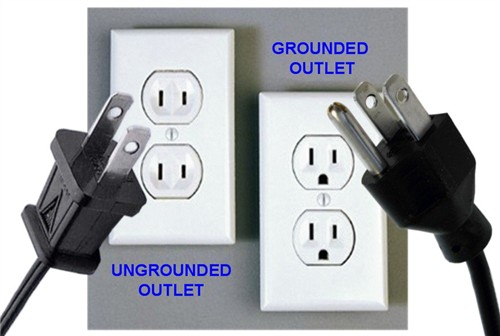
Electricity is an essential part of our daily lives, and electrical outlets have become a necessity in every household. However, when an electrical outlet is not grounded, it can become a serious safety hazard. In this article, we will discuss what a grounded electrical outlet is, why it is important, and what you can do if you have a non-grounded outlet in your home.
What is a Grounded Electrical Outlet?
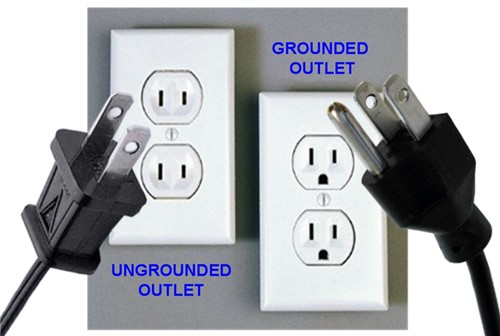
A grounded electrical outlet is one that has a third prong, which is connected to a grounding wire. This wire is then connected to a ground rod, which is driven into the earth outside your home. The grounding wire helps to protect you from electrical shock by providing a path for the electricity to flow in case of a short circuit or other electrical fault.
Why is a Grounded Electrical Outlet Important?

A grounded electrical outlet is important for two main reasons: safety and equipment protection. When an electrical outlet is not grounded, it increases the risk of electrical shock and fire. Without a grounding wire, any electrical faults that occur can cause the electricity to flow through your body, which can be fatal.
Additionally, many electrical devices require a grounded outlet to function properly. Without a grounding wire, there is a risk of damage to your equipment, which can be costly to replace.
How to Determine if Your Electrical Outlet is Grounded?

You can determine if your electrical outlet is grounded by looking at the face of the outlet. A grounded outlet will have three prongs, while a non-grounded outlet will have only two. Additionally, you can use a voltage tester to check if the outlet is grounded.
What to Do if Your Electrical Outlet is Not Grounded?

If you have a non-grounded electrical outlet in your home, it is important to have it replaced as soon as possible. You can hire a licensed electrician to replace the outlet or install a new one. Additionally, you can install a ground fault circuit interrupter (GFCI) outlet, which will provide protection against electrical shock even if the outlet is not grounded.
Conclusion
Electrical outlets are an essential part of our daily lives, and it is important to ensure that they are grounded for safety and equipment protection. If you have a non-grounded electrical outlet in your home, it is essential to have it replaced or install a GFCI outlet as soon as possible. By taking these simple steps, you can protect yourself and your family from the risks associated with non-grounded electrical outlets.
Related video of Electrical Outlet Not Grounded
Electrocardiogram (EKG or ECG) is a test used to monitor the electrical activity of the heart. It is a non-invasive and painless procedure that helps doctors diagnose and monitor heart conditions. EKG machines record the electrical signals that control the heart's rhythm and display them as waves on a monitor or paper. Normal EKG waves show an upward direction, called the QRS complex. However, in some cases, EKG lines may go down instead of up, indicating an abnormality.
What Does It Mean When EKG Lines Go Down?
When EKG lines go down instead of up, it is known as an inverted or negative waveform. This means that the electrical activity in the heart is flowing in the opposite direction than it should. Inverted waves can be seen in different parts of the EKG, such as the P wave, QRS complex, or T wave. The location and shape of the inverted wave can help doctors identify the underlying condition.
Possible Causes of Inverted EKG Waves

There are several possible causes of inverted EKG waves, including:
- Heart attack
- Myocardial infarction (MI)
- Angina
- Cardiomyopathy
- Heart failure
- Pulmonary embolism
- Hypertrophic cardiomyopathy
- Pericarditis
- Electrolyte imbalances
- Mitral valve prolapse
Each of these conditions affects the heart's electrical activity in a different way, leading to inverted EKG waves in specific parts of the waveform. For example, a heart attack or MI can cause inverted T waves, while hypertrophic cardiomyopathy can cause inverted QRS complexes.
Diagnosing and Treating Inverted EKG Waves
If you have an EKG that shows inverted waves, your doctor will likely order further tests to diagnose the underlying condition. These may include blood tests, imaging tests, or other heart tests. Treatment will depend on the underlying cause of the inverted waves. In some cases, such as electrolyte imbalances, treatment may be as simple as taking supplements or changing your diet. In other cases, such as a heart attack or heart failure, treatment may involve medications, lifestyle changes, or surgery.
When to See a Doctor
If you experience any symptoms of heart problems, such as chest pain, shortness of breath, dizziness, or fainting, seek medical attention immediately. These symptoms could be a sign of a serious condition that requires urgent treatment. Even if you don't have symptoms, but your EKG shows inverted waves, you should follow up with your doctor to determine the underlying cause.
Preventing Heart Problems
While some heart conditions are genetic or unavoidable, there are several lifestyle changes you can make to reduce your risk of heart problems. These include:
- Eating a healthy diet
- Exercising regularly
- Maintaining a healthy weight
- Not smoking
- Limiting alcohol consumption
- Managing stress
By taking these steps, you can help keep your heart healthy and reduce your risk of developing heart problems that could cause inverted EKG waves.
In Conclusion
Inverted EKG waves can be a sign of an underlying heart condition, such as a heart attack, cardiomyopathy, or pericarditis. If you have an EKG that shows inverted waves, it's important to follow up with your doctor to determine the underlying cause and receive appropriate treatment. By taking steps to prevent heart problems, you can help keep your heart healthy and reduce your risk of developing inverted EKG waves.
Related video of EKG Lines Going Down Instead of Up: What Does It Mean?

As one of the oldest civilizations in the world, Egypt has a rich culture that spans back thousands of years. One aspect of this culture that has remained strong throughout history is the importance of family, and in particular, the role of the mother. In this article, we'll take a closer look at the Egyptian word for mother and what it says about the country's maternal culture.
The Egyptian Word For Mother

The Egyptian word for mother is "em." This word has been used for thousands of years and is still used today. It is a term of respect and endearment that reflects the important role that mothers have in Egyptian society.
Em is not just a word for biological mothers, but also for women who take on a motherly role, such as grandmothers, aunts, or older sisters. This reflects the importance of family and the extended family unit in Egyptian culture.
The Role Of Mothers In Egyptian Society
In Egyptian society, mothers are highly respected and valued. They are seen as the backbone of the family and are responsible for raising and nurturing their children. Mothers are also often the primary caregivers for their elderly relatives.
In addition to their role in the family, mothers have played a significant role in Egyptian history and mythology. The goddess Isis was revered as the mother of Horus, and many pharaohs claimed to be descended from her.
Motherhood In Ancient Egypt

The importance of motherhood in Egypt can be traced back to ancient times. In fact, one of the earliest depictions of motherhood is a statue of the goddess Isis nursing her son Horus.
Mothers in ancient Egypt were responsible for raising their children and teaching them important values and skills. They were also expected to maintain the household and ensure that their family was well-fed and cared for.
Modern Motherhood In Egypt
While the role of mothers in Egypt has remained important, modern motherhood in Egypt has faced some challenges. Many mothers struggle to balance their responsibilities at home with their careers, and there is a lack of support for working mothers.
However, there are also many initiatives in Egypt aimed at supporting and empowering mothers. These include programs to improve maternal health and education, as well as efforts to promote gender equality and women's rights.
The Importance Of The Egyptian Word For Mother
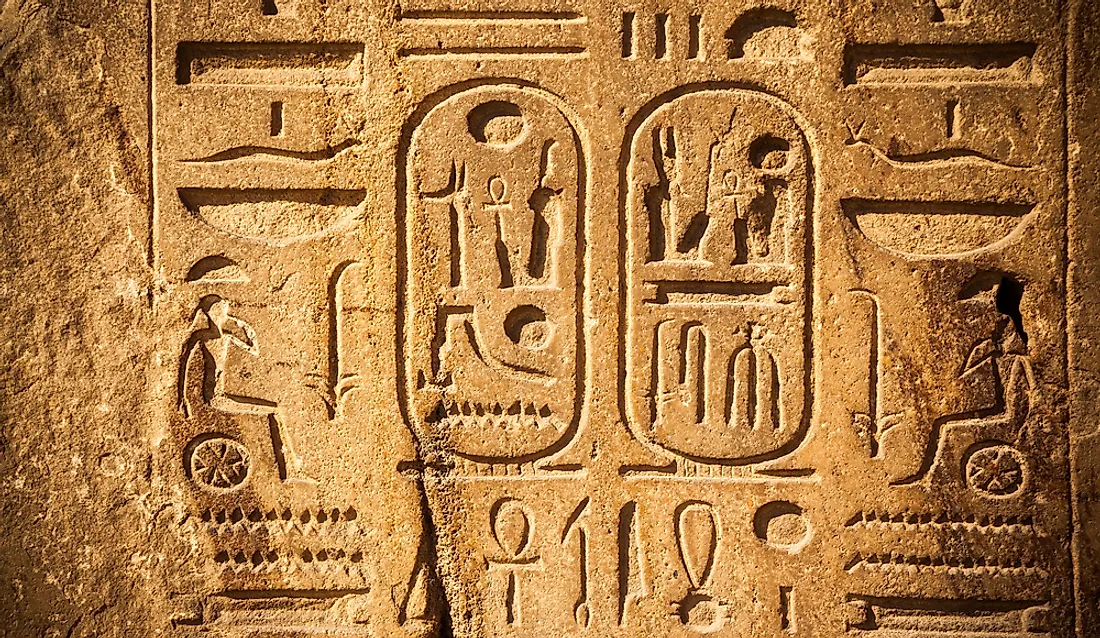
The Egyptian word for mother, em, reflects the importance of mothers in Egyptian society and culture. It is a term of respect and endearment that reflects the love and admiration that Egyptians have for their mothers.
While modern motherhood in Egypt may face some challenges, the importance of mothers in the family and in society remains strong. The Egyptian word for mother is a reminder of the vital role that mothers play in shaping the future of Egypt and its people.
Conclusion
The Egyptian word for mother, em, is a reflection of the important role that mothers have played in Egyptian society throughout history. From ancient times to modern day, mothers in Egypt have been responsible for raising and nurturing their children, maintaining the household, and ensuring the well-being of their family.
While modern motherhood in Egypt may face some challenges, the importance of mothers in the family and in society remains strong. The Egyptian word for mother is a reminder of the vital role that mothers play in shaping the future of Egypt and its people.
Related video of Egyptian Word For Mother: A Look Into Egypt's Maternal Culture

Introduction
Almonds are a popular snack that is considered healthy due to its numerous health benefits. They are rich in protein, fiber, and healthy fats, and can help improve heart health, regulate blood sugar levels, and promote weight loss. However, consuming too many almonds can have adverse effects on your body. In this article, we will discuss the effects of eating too many almonds on your health.
Weight gain

Almonds are high in calories and fat, and consuming too many of them can lead to weight gain. One ounce of almonds contains approximately 160 calories and 14 grams of fat. Eating too many almonds can cause you to exceed your daily calorie intake, which can increase your risk of obesity and related health problems such as heart disease and diabetes.
Stomach problems

Consuming too many almonds can also cause stomach problems such as bloating, gas, and constipation. This is because almonds are high in fiber, and consuming too much fiber can cause digestive issues. It is recommended to consume almonds in moderation and drink plenty of water to prevent stomach problems.
Mineral imbalances

Eating too many almonds can cause mineral imbalances in the body, especially if you have kidney problems. Almonds are high in potassium, and consuming too much potassium can cause hyperkalemia, a condition where your blood has too much potassium. This can cause muscle weakness, irregular heartbeat, and even heart attack. It is important to consume almonds in moderation and consult your doctor if you have kidney problems.
Allergic reactions

Some people are allergic to almonds, and consuming too many almonds can cause allergic reactions. Symptoms of almond allergies include itching, swelling, and difficulty breathing. If you experience any of these symptoms after consuming almonds, seek medical attention immediately.
Vitamin E toxicity

Almonds are high in vitamin E, which is a fat-soluble vitamin that plays a crucial role in maintaining healthy skin, eyes, and immune system. However, consuming too much vitamin E can lead to toxicity, which can cause nausea, diarrhea, and even death in severe cases. It is recommended to consume almonds in moderation and consult your doctor if you are taking vitamin E supplements.
Conclusion
Almonds are a healthy snack that can provide numerous health benefits. However, consuming too many almonds can have adverse effects on your health. It is important to consume almonds in moderation and consult your doctor if you have any health problems. By doing so, you can enjoy the health benefits of almonds without any side effects.
Related video of Effects Of Eating Too Many Almonds

What is an ECG Test?
An electrocardiogram (ECG) test is a medical test that is used to monitor the electrical activity of the heart. This test is typically performed to check for any irregularities or abnormalities in the heart's rhythm and can also be used to detect problems with the heart's structure or blood supply.

What Does an ECG Test Show?
An ECG test can show a variety of things about the heart's function. The test can show the heart's rhythm, rate, and any abnormalities or irregularities in the heart's electrical activity. The test can also show problems with the heart's structure or blood supply.

What is a Normal ECG Test Result?
A normal ECG test result typically shows a regular heart rhythm and a heart rate between 60 and 100 beats per minute. The test should also show normal electrical activity throughout the heart.
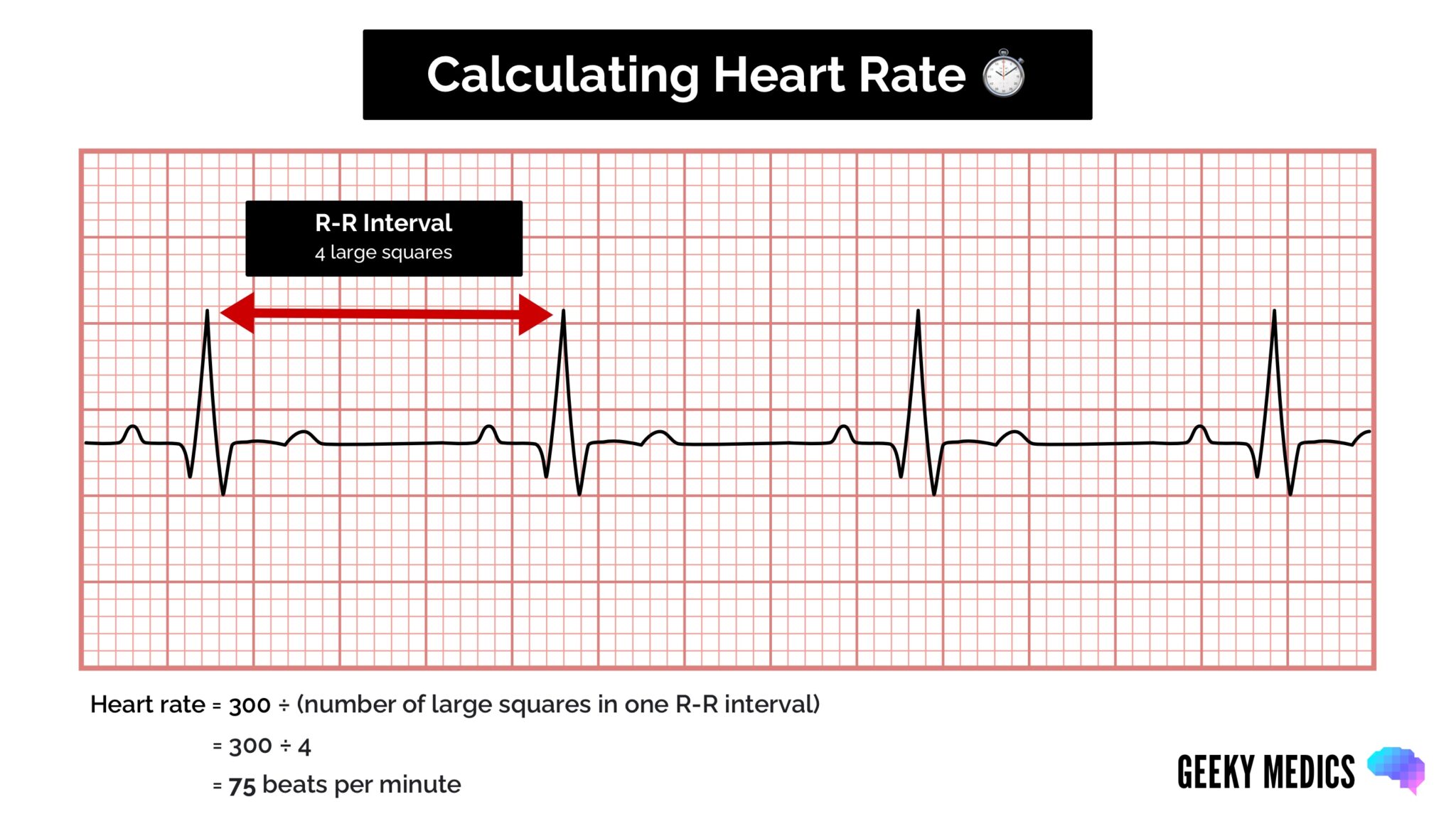
Abnormal ECG Test Results
An abnormal ECG test result can show a variety of things such as irregular heart rhythm, abnormal heart rate, and abnormal electrical activity throughout the heart. These abnormalities can indicate problems with the heart's structure or blood supply.

What is the Normal Range for an ECG Test Result?
The normal range for an ECG test result is a regular heart rhythm and a heart rate between 60 and 100 beats per minute. The test should also show normal electrical activity throughout the heart.

Factors that can Affect ECG Test Results
There are several factors that can affect ECG test results. These factors include medications, physical activity, stress, and caffeine consumption. It is important to inform your doctor of any medications or supplements you are taking before undergoing an ECG test.

How is an ECG Test Performed?
An ECG test is a non-invasive medical test that is performed in a doctor's office or hospital. During the test, small electrodes are placed on the chest, arms, and legs. These electrodes are connected to a machine that records the heart's electrical activity.

Preparing for an ECG Test
Preparing for an ECG test is simple. You should avoid any physical activity or caffeine consumption for at least 2 hours before the test. You should also wear loose, comfortable clothing and avoid wearing any jewelry or metal objects.
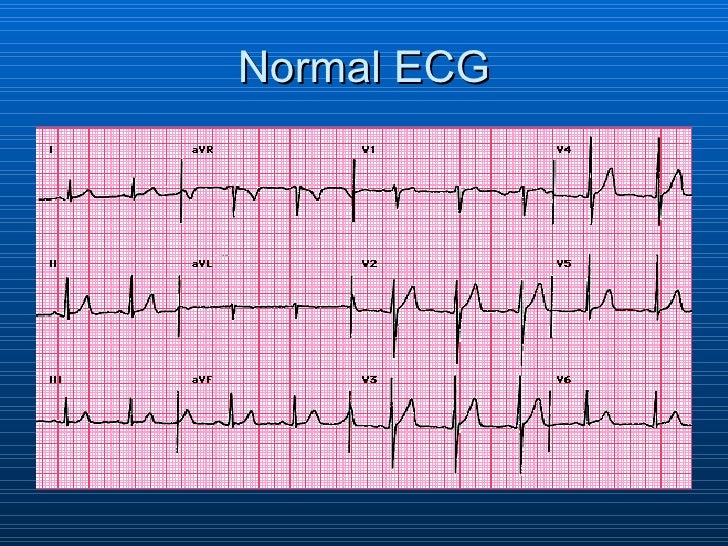
What Happens After an ECG Test?
After an ECG test, your doctor will review the results and determine if any further testing or treatment is necessary. If the test shows abnormal results, your doctor may order additional tests or refer you to a specialist.
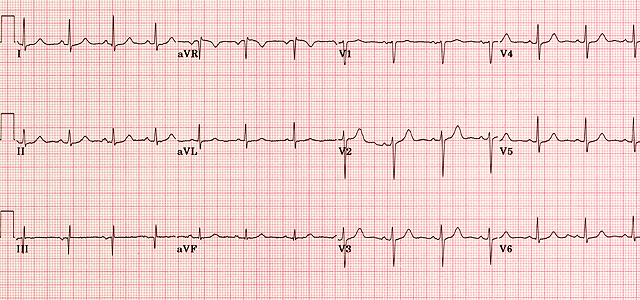
When is an ECG Test Needed?
An ECG test may be needed if you are experiencing symptoms such as chest pain, shortness of breath, or palpitations. The test may also be ordered as part of a routine physical exam or if you have a history of heart disease or other heart conditions.
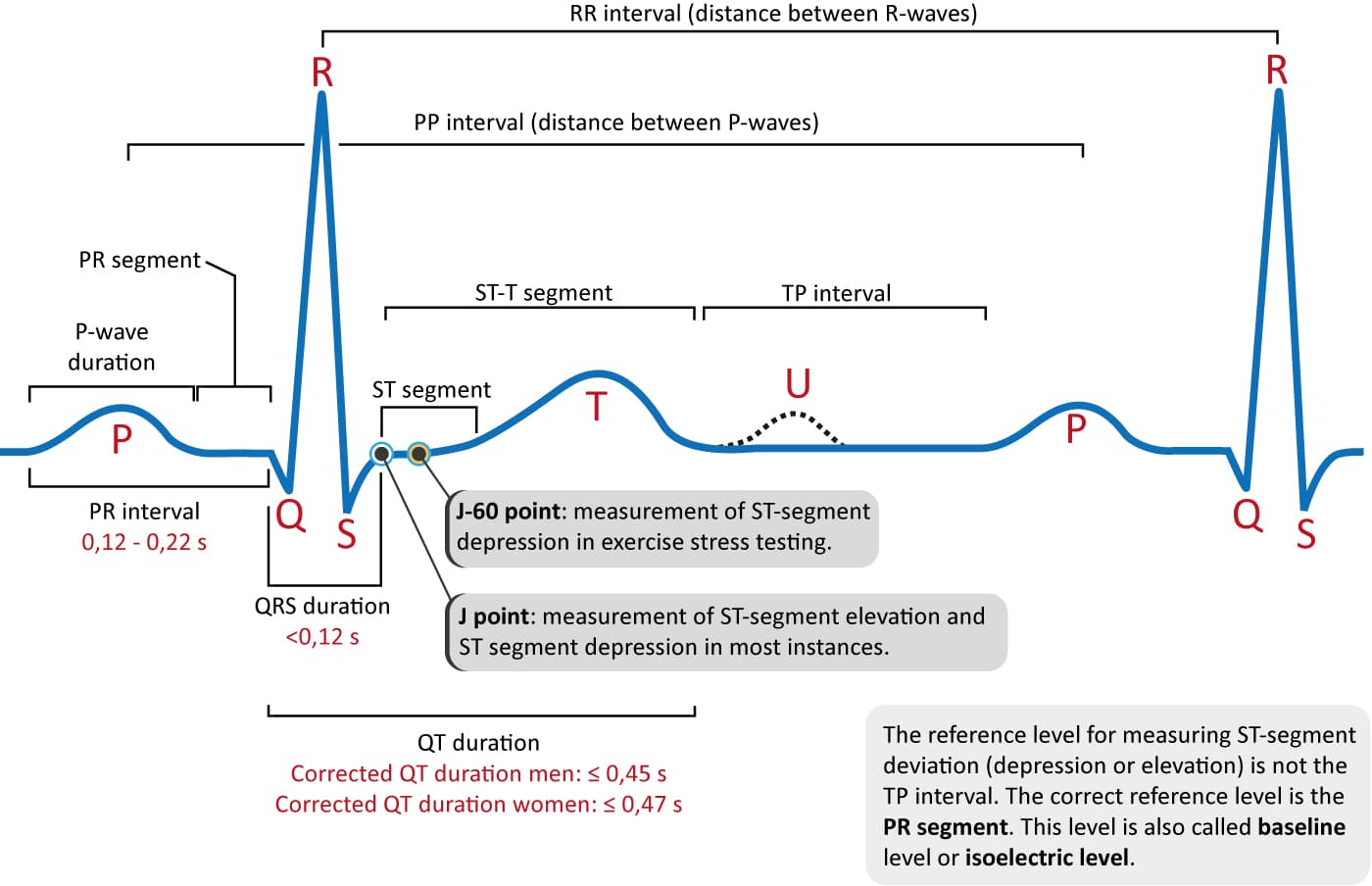
Conclusion
An ECG test is a simple, non-invasive medical test that can provide important information about the heart's function. A normal ECG test result shows a regular heart rhythm and a heart rate between 60 and 100 beats per minute. If you are experiencing symptoms such as chest pain or shortness of breath, it is important to speak with your doctor about whether an ECG test may be necessary.
Related video of Ecg Test Results Normal Range

Introduction
Eat Your Words is an English idiom that means to take back what you said and apologize for it. This phrase has its roots in the ancient practice of eating one's words as a sign of humility and submission. In this article, we will explore the history, meaning, and usage of this fascinating idiom.
The Origin of the Phrase
The phrase 'eat your words' has been in use since the early 19th century. The exact origin of the phrase is unknown, but it is believed to have come from the practice of forcing prisoners to eat words that they had spoken against the ruling authority.
The phrase was used in the 1830s in a political context, where it meant to withdraw a statement made in the House of Commons. Over time, the phrase became more commonly used to mean retracting any statement or admitting that one was wrong.
The Meaning of the Phrase

The meaning of the phrase 'eat your words' is to take back what you said and apologize for it. It is a way of admitting that you were wrong and retracting your previous statement. The phrase can also be used to suggest that someone should be careful with what they say in the future, as their words may come back to haunt them.
Usage of the Phrase

The phrase 'eat your words' is used in a variety of contexts, from politics to everyday conversation. It is often used in situations where someone has made a statement that they later regret, or when someone has been proven wrong.
For example, if someone were to say that a certain football team would never win a game, and that team went on to win the championship, the person who made the statement might be told to 'eat their words.' This would be a way of reminding them that they were wrong and that their words have consequences.
Variations on the Phrase

There are many variations of the phrase 'eat your words,' including 'swallow your pride,' 'eat crow,' and 'put your foot in your mouth.' All of these phrases have similar meanings, and they all suggest that someone has said something they regret and should take it back.
Conclusion
The phrase 'eat your words' is a fascinating idiom with a rich history and a variety of meanings. Whether used in politics, sports, or everyday conversation, it is a powerful reminder that our words have consequences and that we should choose them carefully.
Related video of Eat Your Words Origin

Earthworms are fascinating creatures that play an important role in our ecosystem. They are often seen as slimy and gross, but they are actually very important for our planet. Earthworm videos for kids are a great way to teach children about the importance of these creatures and how they help our environment.
The Life of an Earthworm
Earthworms are hermaphrodites, meaning they have both male and female reproductive organs. They lay their eggs in cocoons and bury them in the soil. The eggs hatch and the baby earthworms emerge. Earthworms can live up to 8 years.
How Earthworms Help Our Environment

Earthworms help to improve the soil by burrowing through it and creating tunnels. This helps to aerate the soil and allows water and nutrients to reach plant roots more easily. Earthworms also break down dead plant material and animal waste, which helps to fertilize the soil.
Fun Earthworm Facts

- Earthworms do not have lungs, they breathe through their skin.
- Earthworms are not insects, they are annelids.
- Earthworms can eat up to one-third of their body weight each day.
- Earthworms can regenerate lost segments of their bodies.
Earthworm Videos for Kids

There are many earthworm videos for kids available on the internet. These videos can be a great way to teach children about the importance of earthworms and how they help our environment. Some popular earthworm videos for kids include:
- "The Earthworm Song" by KidsTV123
- "Wiggly Worms" by SciShow Kids
- "Earthworms for Kids" by Socratica Kids
Conclusion
Earthworms may not be the most glamorous creatures, but they play an important role in our ecosystem. Earthworm videos for kids can be a great way to teach children about the importance of earthworms and how they help our environment. By learning about earthworms, children can develop a greater appreciation for the natural world and the creatures that inhabit it.